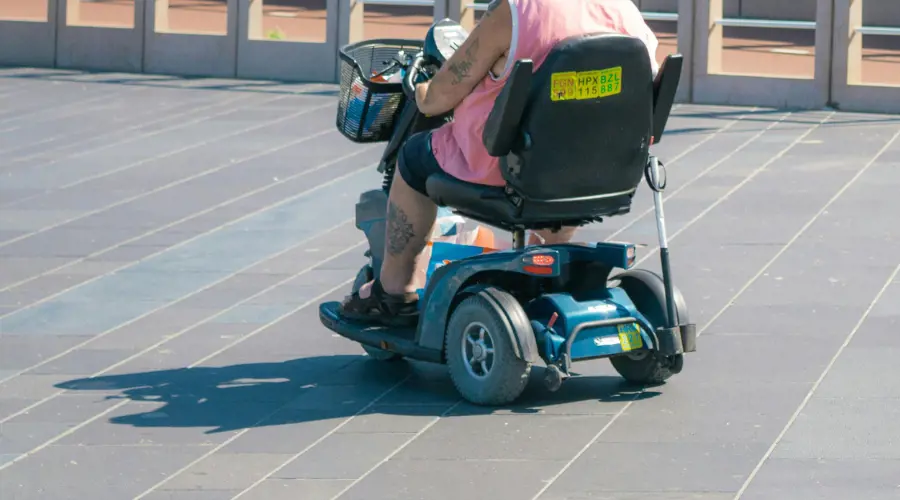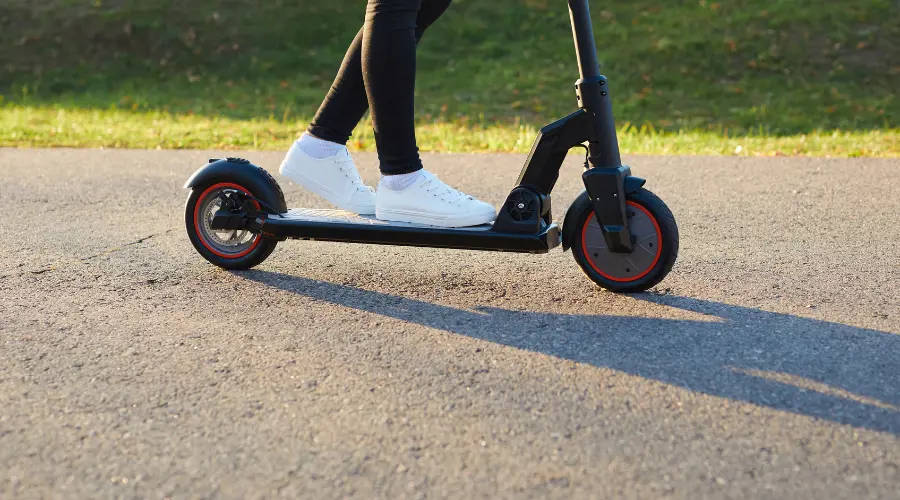Information for independent living scheme residents

Mobility scooter stores
Mobility scooter stores can be found at all our following Independent Living Schemes:
- Churchfields
- Church Street Close
- Glebe Court
- Heather Court
- Hudsons Haven
- King Street
- Pendon House
- Saville Court
- Shipcroft
- Willowcroft
- Woodhall Flats
As a resident of an Independent Living Scheme, you can apply to store your own personal mobility scooter within the store. We hope our mobility scooter stores assist our residents in maintaining their mobility, freedom, and independence.
The Scheme Manager for the scheme will provide you with a copy of our Mobility Scooter Storage Policy. They will check if spaces are available and add you to a waiting list if the store is currently full. When a space is available, the Scheme Manager will help you fill in an application form and discuss with you the weekly charge.
The charge is 60p a week and is paid directly from your rent account. We advise residents to obtain appropriate insurance for mobility scooters (details of which are available in the policy) and a copy of this will be taken for our records.
Your mobility scooter will need to have a Portable Appliance Test (PAT test) - which is an electrical safety test - if it is to be kept in the store and again the Scheme Manager will be able to discuss with you the arrangements for this.
The mobility scooter stores are communal areas and Berneslai Homes accepts no responsibility for any loss, theft or damage of any items placed within the store.
You can read our policy below.
Electric scooters and e-bikes – charging batteries and maintenance
Like all electrical items, mobility scooters, e-bikes and e-scooters with a lithium battery can cause a fire risk. If the batteries become damaged or begin to fail, they can start fires that spread quickly out of control.
You can reduce the risk of a lithium battery catching fire by:
- Charging your batteries safely
- Spotting the warning signs that a battery might be dangerous
When charging lithium batteries:
- Don’t block your exit with charging batteries, mobility scooters, e-bikes, or e-scooters - keep your exit route clear at all times
- Never leave your battery to charge when you’re out or asleep
- Make sure your battery and charger meet UK safety standards
- Use the correct charger for your battery and only buy from a reputable seller
- Let your battery cool before charging it
- Unplug your charger once the battery has charged
- Check the smoke alarms in the area where you charge your batteries
- Know the warning signs that your battery might be failing and becoming a fire risk (see below)


Before a failing lithium battery catches fire, there are often a few warning signs. If you see any of these signs you'll need to take immediate action to stay safe and reduce the risk of fire:
- Heat - it’s normal for batteries to generate some heat when charging or in use but if the battery feels extremely hot to the touch it might be damaged
- Bulging - a battery bulging or swelling out of shape is a common sign of it failing - if your battery looks swollen, has any lumps, or is leaking - you should stop using it immediately
- Noise - failing lithium batteries have also been reported to make hissing or cracking sounds
- Smell - a strong or unusual smell coming from the battery could also be a sign of it failing
- Performance - a failure to fully charge or longer charge times can be a sign that your battery is failing
- Smoke - if your battery or device is smoking, a fire has already started
What you should do if your lithium battery is a fire risk
If your battery shows any of these signs of failing, immediately turn off the device and unplug it from the power source.
Call the device manufacturer or retailer for further instructions. If the device starts smoking or catches fire, raise the alarm, get out, stay out and call 999 immediately.
Disposing of a lithium battery
Lithium batteries shouldn’t be placed in your wheelie bin or communal bin due to the fire risk they pose. Instead you should dispose of them safely at your local household waste recycling centres.
In our independent living schemes
We have specific guidance for residents living in our independent living schemes:
- Mobility scooters should be recharged within the designated charging area and should be charged according to the manufacturer’s instructions.
- Recharging should only be carried out during daytime hours and not overnight.
- The scooter store should not be used for charging up of any other personal items, such as laptops or mobile phones
- All scooters must have an up-to-date Portable Appliance Test (PAT test) to ensure that the charging equipment is in good condition. The PAT test will be carried out by Berneslai Homes on an annual basis. Residents must make sure that the equipment is available for testing when notified of the date.
- If any equipment fails the PAT test, it will be the scooter owner’s responsibility to repair/replace the damaged item before it can be used again.
- Residents must ensure that the scooter is serviced and maintained regularly, and this is the responsibility of the scooter owner.